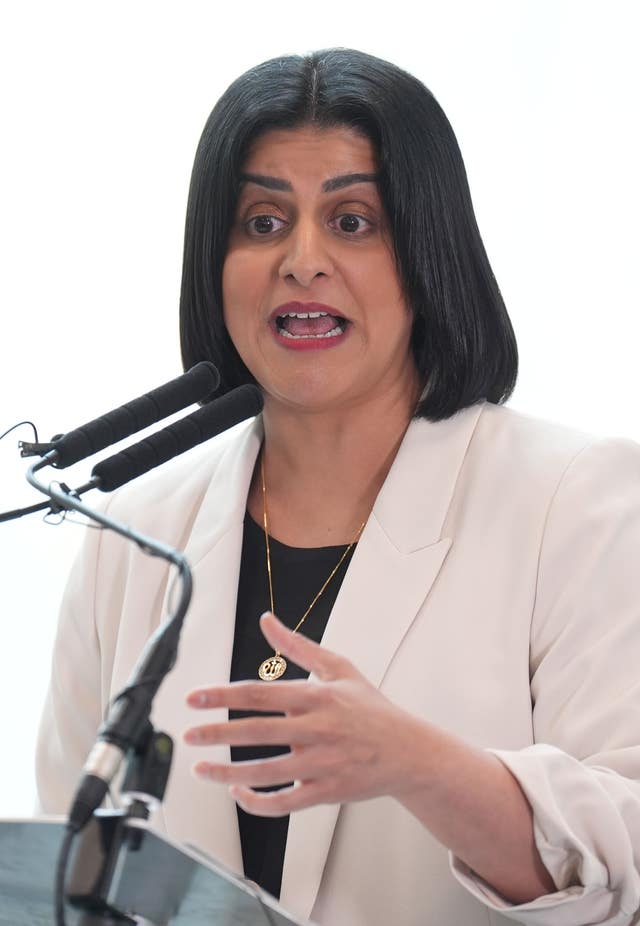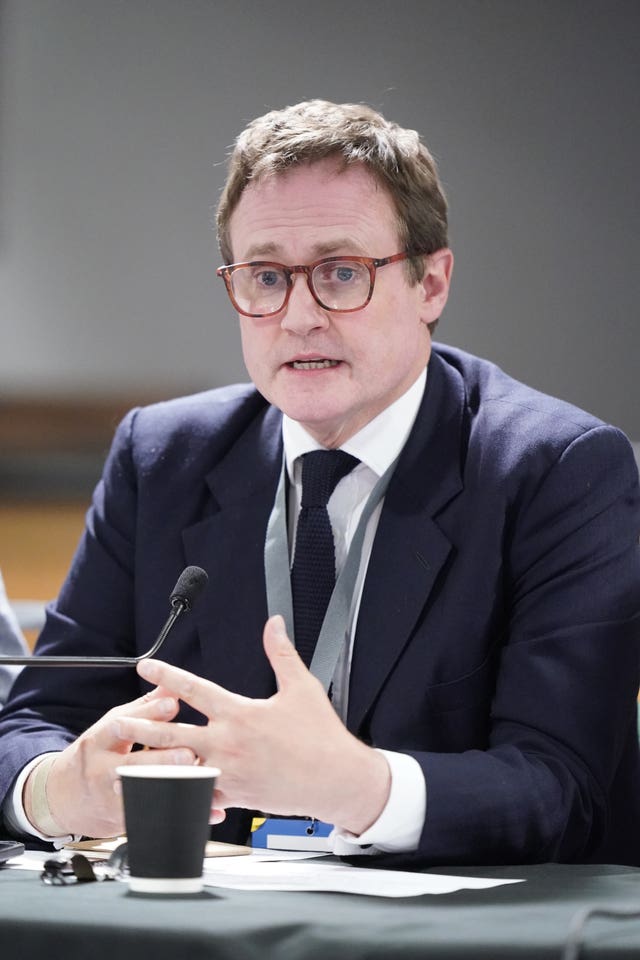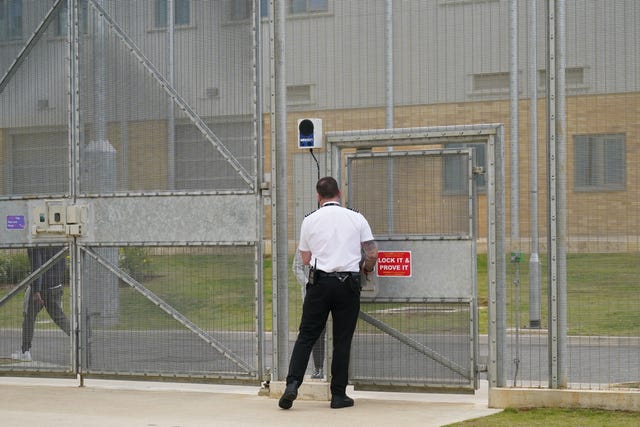
Former home secretary Suella Braverman has urged her party to “take responsibility for what we did” after the Government announced measures to free some prison inmates earlier than planned.
Ms Braverman warned in a post on X, formerly Twitter, that a cut to the proportion of prisoners’ sentences which must be spent in jail – from 50% to 40% – could put “the public at risk”.
Her Conservative Party colleague and shadow security minister Tom Tugendhat also questioned whether the move was “a good idea”, while the independent Chief Inspector of Prisons Charlie Taylor acknowledged “a decision needed to be taken, and none would have been without risk”.
Everyone and his mother should run to be leader.
But we’ve all got to start taking responsibility for what we did. And for the things we shamefully left undone.
Such as not building enough prisons.
— Suella Braverman MP (@SuellaBraverman) July 12, 2024
In a speech at HMP Five Wells in Wellingborough, Northamptonshire, Justice Secretary Shabana Mahmood branded her Tory predecessors “the guilty men” responsible for “a total breakdown of law and order”.
She said: “In short, if we fail to act now, we face the collapse of the criminal justice system – and a total breakdown of law and order.”
The temporary jail time reduction from 50% to 40% would not apply to violent offenders serving more than four years, sex offenders or those in prison for crimes connected to domestic abuse.
Dangerous offenders serving extended or life sentences would also be exempted from the scheme, the Government confirmed.

Taking to social media and referring to an upcoming Conservative Party leadership battle after Leader of the Opposition Rishi Sunak announced his intention to step aside, Ms Braverman wrote: “Everyone and his mother should run to be leader.
“But we’ve all got to start taking responsibility for what we did. And for the things we shamefully left undone.
“Such as not building enough prisons.”
In an attack on her own party, which presided over an early release scheme to free 10,000 prisoners up to 70 days early, Ms Braverman also wrote: “I opposed this both inside and outside government.”
She added: “Labour is picking up Tory ideas and putting the public at risk.”
Mr Tugendhat – who could face Ms Braverman in a leadership contest – wrote on X: “In what world is releasing 20,000 criminals onto our streets a good idea.”
But Mr Taylor said: “This is a critical point for prisons, with barely any places left and the effects of existing measures such as End of Custody Supervised Licence being exhausted. A decision needed to be taken, and none would have been without risk.
“While we therefore welcome recognition of the seriousness of the situation, and swift action to manage the prison populations to relieve the immediate strain many jails are under, this latest measure will inevitably lead to the early release of some risky offenders, and will add to the workload of already stretched prison Offender Management Units and probation services.
“How these men are prepared for release and how prisons and probation are supported in managing them will be vital.”
Baroness Newlove, Victims’ Commissioner for England and Wales, called for public safety to remain the Government’s “top priority” and added: “Clear communication with victims is essential to building trust throughout the process. It is important victims are informed if release dates are brought forward and are given the opportunity to request protective measures. Thorough risk assessments are essential, as are robust release plans.”

The Justice Secretary said the early release would not take effect until September, that offenders could be forced to wear electronic tags and adhere to a curfew, and that the change was not permanent, with a plan to review it in 18 months’ time.
Campbell Robb, chief executive of the Nacro charity which supports prisoners’ rehabilitation, said: “At Nacro every day across our services we see the impact of the overcrowded, inhumane conditions in prisons.
“Whilst it is critical to tackle this immediate crisis, the Government must also address how we got here in the first place.
“We are sending too many people to prison for too long and not rehabilitating them enough while they are in there. We need an effective and sustainable justice system, which puts victims at the heart, and better serves us all.”
Mr Robb also said: “Nacro welcomes the urgent action that the Government is taking to address the prison crisis.”
Plaid Cymru’s Westminster leader Liz Saville Roberts turned her attention to “deep-rooted failings” in a statement.

The political party fields candidates in Wales, where 10 prisoners at HMP Parc, near Bridgend, died between winter and summer 2024.
Ms Saville Roberts said: “The UK Government’s approach is just a temporary fix to deep-rooted failings.
“Plaid Cymru calls for the new Labour government to implement a credible, long-term plan to fully address this crisis.
“This plan should include community-based sentences for low-risk offenders, efforts to reduce the court backlog, decriminalisation of soft drugs, and strengthened cross-sector crime reduction and rehabilitation strategies through devolving justice powers to Wales.”
Some 708 places remain available for adult males across the prisons estate as of July 8, according to the latest available Government figures.


Comments: Our rules
We want our comments to be a lively and valuable part of our community - a place where readers can debate and engage with the most important local issues. The ability to comment on our stories is a privilege, not a right, however, and that privilege may be withdrawn if it is abused or misused.
Please report any comments that break our rules.
Read the rules hereLast Updated:
Report this comment Cancel